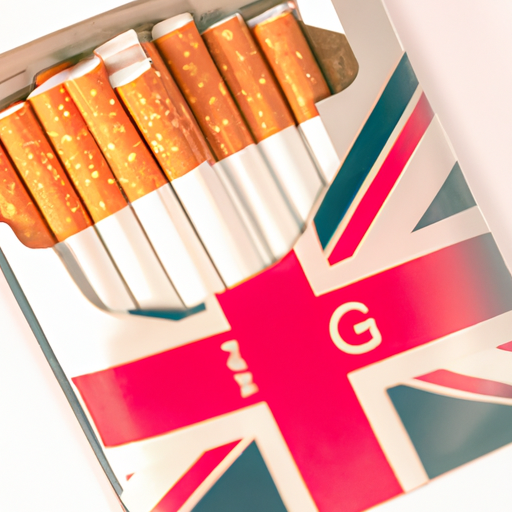
As a long-time resident of the United Kingdom, I have seen firsthand the impact of cigarette culture on our society. Despite government efforts to discourage smoking, cigarettes continue to be a prevalent and often controversial aspect of British culture. From the design of cigarette packaging to regulations on smoking in public places, cigarettes have been a constant topic of discussion and debate.
At first glance, it may seem that cigarettes are simply a product for personal consumption, but their influence goes far beyond that. As a non-smoker, I have observed how cigarettes have shaped social interactions and attitudes towards smoking in the UK.
One of the most recognizable elements of cigarettes in the UK is the distinctive packaging. For decades, cigarettes were sold in easily identifiable branded packaging, with bold colors, logos, and slogans. However, in 2016, the UK became the second country in the world, after Australia, to introduce plain packaging for cigarettes. This meant that all cigarette packs had to follow strict guidelines with no branding or promotional material, only a neutral font displaying the brand and product name. This move was met with both praise and criticism. Some saw it as a necessary step to deter young people from taking up smoking, while others argued that it infringed on the rights of tobacco companies.
Aside from packaging regulations, the UK government has also implemented various measures to discourage smoking. These include bans on advertising, display restrictions in shops, and higher taxes on cigarettes. However, despite these efforts, smoking remains a billion-pound industry in the UK. This indicates that there is still a large number of people who continue to smoke, despite the health risks and financial implications.
Smoking has also played a significant role in shaping social interactions in the UK. Growing up, I remember my parents and grandparents smoking in social settings, whether it was at a family gathering or a night out with friends. It was a widely accepted practice and was often seen as a way to socialize and bond with others. However, as the awareness of the health risks associated with smoking increased, attitudes towards smoking changed. Many public places, including restaurants and pubs, became smoke-free, and smokers were confined to designated areas. This led to a divide between smokers and non-smokers, with the latter sometimes feeling ostracized or inconvenienced by the smoke.
Despite these divisions, smoking continues to be a shared experience among many people in the UK. Going out for a “smoko” (a break from work for a cigarette) is a common occurrence in many workplaces. It is also a way for colleagues and acquaintances to bond and have informal conversations. In some cases, smoking even acts as a social equalizer, with people from different backgrounds coming together over a shared habit. However, with the increase in e-cigarettes and nicotine alternatives, the traditional cigarette smoking culture is undergoing significant changes.
The tobacco industry has also played a significant role in shaping cigarettes in the UK. Despite the strict regulations, tobacco companies still have a powerful presence. They continue to invest in marketing and promoting their products, often targeting younger audiences. The rise of vaping has also led to many tobacco companies investing in e-cigarettes and alternative nicotine products. Some view this as a way for tobacco companies to stay relevant and maintain their profits in the face of declining cigarette sales.
There is also a significant economic impact of cigarettes in the UK. According to a study by the British Heart Foundation, smoking-related illnesses cost the UK economy around £12.6 billion annually. This includes lost productivity due to illness, healthcare costs, and the impact of secondhand smoke on non-smokers. The government also benefits from the sale of cigarettes, with an estimated £10 billion in tax revenue generated from tobacco products.
As a non-smoker, I have noticed the gradual shift towards a more health-conscious society. More and more people are choosing healthier lifestyles, and smoking is no longer seen as glamorous or desirable as it once was. However, there is still a long way to go in reducing the prevalence of smoking in the UK. Government regulations can only do so much, and ultimately, it is up to individuals to make informed decisions about their health and well-being.
In conclusion, cigarettes in the UK are more than just a product – they have influenced social interactions, shaped government policies, and have a significant economic impact. While the culture of smoking has undoubtedly changed over the years, there is still a long way to go in creating a smoke-free society. As someone who has witnessed the evolution of cigarettes in the UK, I can only hope that we continue to prioritize the health and well-being of our society and future generations.